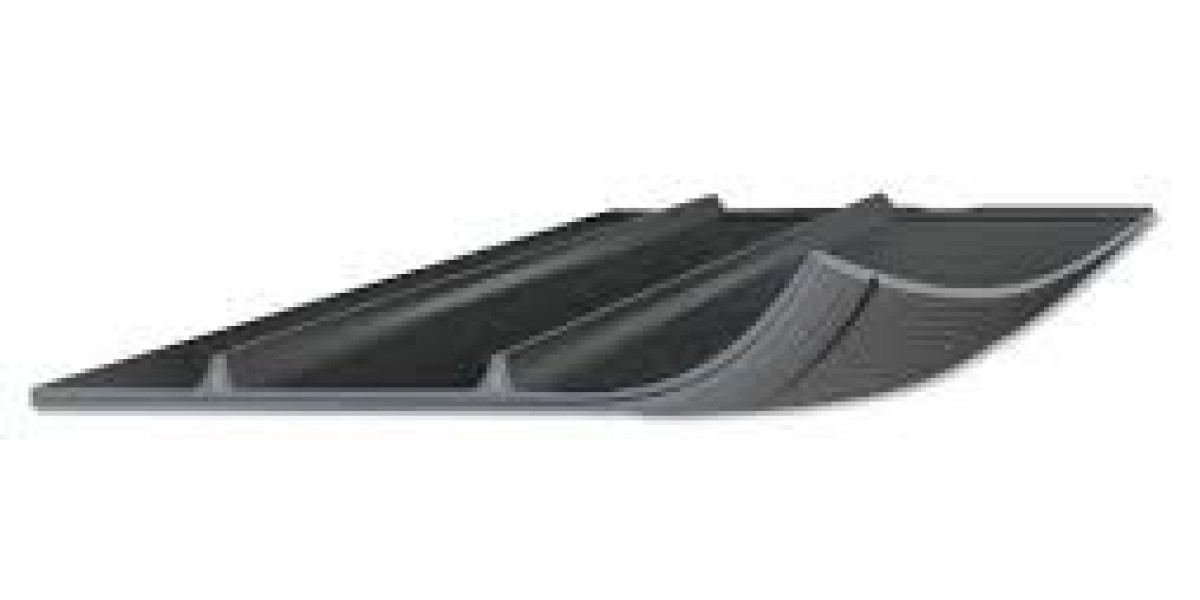As industries continue to evolve and advance, the need for efficient and reliable machinery becomes increasingly paramount. One essential component that plays a crucial role in various industrial processes is the Draper belt. Draper belts have revolutionized the way materials are handled, transported, and processed, offering significant advantages over traditional methods. In this article, we will delve into the world of Draper belts, exploring their functionality, benefits, and the industries that benefit from their implementation.
Understanding Draper Belts
What are Draper Belts?
Draper belts are specialized conveyor belts that are commonly used in manufacturing, agricultural, and industrial settings. They are designed to facilitate the smooth movement of materials, such as crops, raw materials, or finished products, from one point to another. Midwest draper belts spare parts typically consist of a series of interlocking links or slats that are attached to a continuous chain. This unique design allows them to operate in a flexible and synchronized manner, adapting to the specific requirements of different industries.
How Do Draper Belts Work?
Draper belts operate on the principle of continuous loop movement. The chain drive propels the interconnected links, creating a continuous surface that carries materials along a predetermined path. This design ensures a consistent flow of materials, minimizing disruptions and optimizing efficiency. The versatility of Draper belts allows them to handle a wide range of materials, including but not limited to agricultural products, industrial components, and even delicate items such as electronic devices.
Advantages of Draper Belts
Draper belts offer several advantages over traditional conveyor systems, making them a preferred choice for many industries. Let's explore some of the key benefits:
1. Flexibility and Adaptability
The modular design of Draper belts allows for easy customization to fit specific production requirements. The interlocking links can be modified, enabling the conveyor belt to accommodate materials of varying shapes, sizes, and weights. This flexibility makes Draper belts suitable for a wide range of industries, from agriculture and food processing to automotive and manufacturing.
2. Improved Efficiency and Productivity
By providing a continuous and reliable means of material transportation, Draper belts enhance overall workflow efficiency. The smooth movement of materials reduces the risk of jams, delays, or damage, resulting in optimized productivity and minimized downtime. Additionally, the synchronized operation of Draper belts ensures consistent product quality, enabling businesses to meet stringent industry standards and customer expectations.
3. Gentle Material Handling
Certain industries require delicate handling of materials to prevent damage or contamination. Draper belts excel in these scenarios due to their gentle conveying action. The precise control over speed and movement prevents unnecessary agitation, ensuring the integrity and quality of the transported items. This makes Draper belts particularly valuable in industries such as electronics, pharmaceuticals, and fragile product manufacturing.
4. Hygienic and Easy to Clean
In industries where cleanliness and hygiene are paramount, Draper belts offer a significant advantage. Their open structure and smooth surface make them easy to clean, preventing the accumulation of debris, dust, or contaminants. Furthermore, the materials used in the construction of Draper belts can often withstand rigorous cleaning processes, including high-pressure washing or sanitization. This feature is especially crucial in food processing, pharmaceuticals, and other industries where strict hygiene standards must be upheld.
Industries Benefiting from Draper Belts
Draper belts find applications in a wide array of industries, each benefiting from the unique advantages they offer. Here are some notable sectors that rely on Draper belts for their material handling needs:
1. Agriculture and Farming
In the agricultural sector, Draper belts play a vital role in harvesting, sorting, and transporting crops. They are commonly used in combine harvesters, allowing for efficient grain collection while minimizing losses. Draper belts also enable gentle handling of delicate crops like fruits and vegetables, preventing bruising and preserving their market value.
2. Manufacturing and Assembly
Manufacturing and assembly lines require seamless material flow to ensure optimal productivity. Draper belts facilitate the movement of components, sub-assemblies, and finished products between different stages of the production process. They help streamline operations, reduce manual handling, and ensure the timely delivery of goods.
3. Packaging and Distribution
Efficient packaging and distribution processes are essential for meeting customer demands and maintaining supply chain efficiency. Draper belts aid in the packaging of products, allowing for precise control and alignment during the filling, sealing, and labeling stages. Their smooth and reliable movement ensures accurate positioning and reduces the risk of packaging errors or damage.
4. Warehousing and Logistics
In warehousing and logistics operations, Draper belts provide a versatile solution for material handling and order fulfillment. They enable the efficient movement of goods within a warehouse, from receiving to storage and dispatch. Draper belts can be integrated with sorting systems, barcode scanners, and automated picking technologies, further enhancing warehouse efficiency and reducing operational costs.
Conclusion
Draper belts have emerged as indispensable tools in modern industrial processes, offering unmatched efficiency, adaptability, and reliability. Their ability to handle various materials with precision and care has made them a preferred choice across multiple industries. Whether it's the agricultural sector, manufacturing facilities, packaging and distribution centers, or warehouses, Draper belts continue to transform the way materials are handled, enhancing productivity and ensuring the smooth flow of operations. Embracing the advancements in conveyor technology, businesses can unlock new levels of efficiency, reduce costs, and gain a competitive edge in the dynamic world of industry and commerce.








